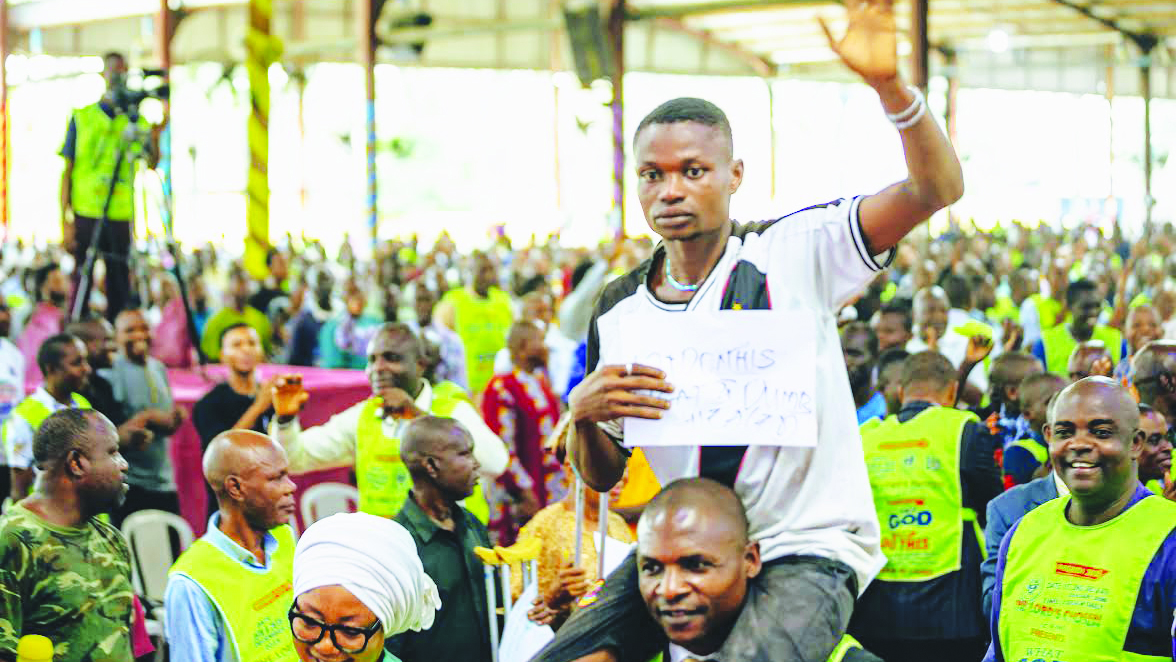
There is an enduring promise that those who are faithful to Christ, who are living righteously, and who are obedient and trusting, will always receive answers to their prayers, especially those not based on selfish desires. Prophet Elijah made selfless prayer geared towards turning Israel back to God. King Ahab and his wife, Jezebel, had managed Israel for the devil and Baal worship. They turned the righteous nation into a godless one. As a result, Elijah became concerned and wanted them to see the hand of God. “He prayed earnestly that it might not rain: and it rained not on the earth by the space of three years and six months.”
After this period, he prayed again, and there was rain upon the earth and it brought forth her fruit. He charged the prophets of Baal to pray unto their god to release fire upon their sacrifice. They prayed and nothing happened because they were not serving a living God. Eventually, Elijah prayed and fire fell from heaven, and “consumed the burnt sacrifice…”
Our purpose for praying should be to make sinners know the only true God. If we pray with that understanding for our nation and her people to turn to God, He will answer.
When God vowed to reject the children of Israel because of their descent into idolatry, it led to Moses’ self-sacrificing prayer. His plea was: “Yet now, if thou wilt forgive their sin; and if not, blot me, I pray thee, out of thy book, which thou hast written.” He was not interested in becoming a great nation; rather, he aimed at getting the people restored to God. We should not covet a position of exaltation at the expense of the people of God. Apostle Paul was also concerned about the spiritual state of the children of Israel. He wanted them saved too. “For I could wish that myself were accursed from Christ for my brethren, my kinsmen according to the flesh.” He was ready to sacrifice himself so that the people could come to the Lord. Those who care for themselves only do not have the heart of a shepherd and cannot pray for the people’s restoration to God.
Fervent saints should have the heart to seek the lost. Like Christ, we need to be passionate about our prayer for the people who do not know the Lord so that they will be saved. “But when he saw the multitudes, he was moved with compassion on them, because they fainted, and were scattered abroad, as sheep having no shepherd.” Some of them attend churches, but they are only nominal churchgoers. Before we go out to witness to them, we must cry out unto the Lord in the secret, requesting their salvation. The early Church prayed for the people’s restoration and had real breakthrough in evangelism, which their communities testified about. If the people around us will be saved and not languish in hell forever, we must have fervency within that compels us to go and win them for Christ.
Our prayer should not only centre on our general needs, but also channelled towards the restoration of those who “err from the truth” and are backslidden. We should be concerned about their eternal destination, go after them and passionately seek their return to the fold. By so doing, we will save their “soul(s) from death, and shall hide a multitude of sins.”
“Therefore I will judge you, O house of Israel, every one according to his ways, saith the Lord God. Repent, and turn yourselves from all your transgressions; so iniquity shall not be your ruin.” Whilst the Lord pities backsliders, He feels same for sinners. This is because He is “not willing that anyone should perish, but that all should come to repentance” and restoration.
God is ready to forgive sinners and blot out their sins if we stand before Him and speak on their behalf, faithfully. “I, even I, am he that blotteth out thy transgressions for mine own sake, and will not remember thy sins.” We must plead with the Lord to convict and restore them to righteousness and all His provisions. After pleading with the Lord, we must go to those sinners and backsliders and plead with them on God’s behalf that they should return to Him.
The promises of God are available to us all. He promises salvation and forgiveness to sinners, sanctification to believers and baptism in the Holy Ghost to the sanctified. He also grants us abundant life. His promise of boundless blessings are made to “…you, and to your children, and to all that are afar off, even as many as the Lord our God shall call.” These include promises of healing, deliverance, better covenant, gifts of the Spirit, sustaining spiritual strength, among others. Believers ought not to lack anything spiritual, natural, personal, professional, marital, ministerial or secular. As we pray in faith, we must believe and not doubt His promises. We must be “fully persuaded that, what he (has) promised, he (is) able also to perform.”
• Further reading (King James Version): James 5:13-20. James 5:17,18. James 5:17,18; 1 Kings 17:1; 18:21,36-39,41-45. Exodus 32:10-12,14,32; Romans 9:1-3. Matthew 9:36-38; Lamentations 2:18,19; Psalm 2:8; Acts 4:24,29-31. James 5:19,20. Ezekiel 18:30-32; 2 Peter 3:9. Isaiah 43:25,26; Galatians 6:1. Acts 2:39; 2 Corinthians 1:20; 2 Peter 1:3,4; Romans 4:20-25.






